Uplifting Black Muslim Youth Toolkit
A fifth of the American Muslim population is made up of Black Muslims and it is time for the research and resources to reflect this fact. Recognizing this, as well as the fact that racial inequities persist in our society, The Family & Youth Institute has published the Uplifting Black Muslim Youth Toolkit, as well as a book titled Uplifting Black Muslim Youth: A Positive Youth Development Approach.
History of The Project
The FYI is dedicated to researching the issues facing American Muslim communities in order to support individuals and empower communities. One of our main focus areas is Positive Youth Development. The lived experiences of Black American Muslim youth are unique and the issues faced are not accurately reflected in the current research nor supported by the available resources.
In 2009, some of the questions and concerns of these individuals and institutions were shared with The FYI Team. As a result, we committed to promoting the development of young people through The Black Muslim Youth project. We began to work with community stakeholders to identify research questions and concerns. We then heard from Black Muslim youth, leaders, parents, and mentors from across the nation through focus groups, individual and group discussions, surveys, and needs assessments. This became the groundwork of the book and this accompanying toolkit where our foundational question is: how can we better support Black Muslim youth?
In 2018, The FYI received funding from Islamic Relief to develop resources to promote American Muslim youth development. Part of this grant was used to integrate research findings and publish the book, Uplifting Black Muslim Youth: Towards A Positive Youth Development Approach. The funding was also used to produce the current Uplifting Black Muslim Youth Toolkit which is meant to gather resources to help individuals and communities implement recommendations. Throughout the development of these resources, we reached out to numerous Black Muslim youth, parents, leaders, educators, mental health professionals, researchers, and religious scholars to review and provide constructive feedback in order to center their voices and improve the resources developed.
Given the diversity of Black Muslim communities, the focus of The FYI’s Black Muslim Youth Project is to understand the lived experiences of Black Muslim youth who were specifically raised Muslims and are descendants of individuals who had been forcibly enslaved. [Note: While there are some similarities and experiences shared with African immigrants, the experience of colonialism and immigration differs profoundly from the experience of enslavement in the U.S. and thus the focus of this research and toolkit is on indigenous Black Muslims.]
Black Muslim communities are diverse in their thought, experiences, and backgrounds. While we have attempted to include some of these variations in both the book and toolkit, we fully acknowledge that we have not done justice to all the unique variations and expressions that exist. We recognize that many topics, issues, and resources may still need to be included–as such we consider this effort to be preliminary and something to be improved upon. We are committed to supporting and serving our community, suggestions for improvement and additional resources are welcomed and can be sent here.
About Positive Youth Development
It takes a village to raise a child. But how should you, the villagers, engage children so they can thrive? Positive Youth Development (PYD) is an evidence-based model that helps young people reach their full potential by focusing on building six outcomes to help them flourish.
The model focuses on cultivating positive relationships with parents, family, and those outside the family, such as teachers and mentors through intentional efforts as youth navigate life’s challenges. Coupled with positive environments, these relationships nurture specific characteristics–developmental assets–that help young people not only be resilient but more importantly thrive!

A PYD framework helps to:
1) Develop positive relationships and environments that give them a sense of belonging,
2) Builds assets/or strengths to help young people succeed in these environments, and
3) Provides opportunities to use skills and contribute to their environment.

Book: Uplifting Black Muslim Youth
A Positive Youth Development Approach

Black Muslim youth stand at the cross-section of anti-Black racism and anti-Muslim sentiments. What is it like to identify with both of these uniquely marginalized groups? How are young Black Muslims thriving in these conditions? What can adults do to ensure optimal development?
Following 10 years of work from the authors who have pioneered research on American Muslim youth and counseling Muslims, this groundbreaking book explores the complex factors impacting Black Muslim youth outcomes. Centering the voices of Black Muslim youth, this book summarizes the latest research and is a road map for individuals and institutions invested in transforming feelings and experiences of marginalization, to those of strength and resiliency.
As someone who identifies as Black and Muslim, you know that race matters in how you interact with and experience the world. The resources in these sections are meant to cater to your needs and realities. As a parent, young person, or community leader we hope you use these resources and tools to uplift the Black Muslim youth in your lives.
Empowering Black Muslim Families
Parents are a powerful influence on their child(ren).

“Every great dream begins with a dreamer. Always remember, you have within you the strength, the patience, and the passion to reach for the stars to change the world.”
– Harriet Tubman
1. Recognize. As a parent, you are a powerful influence on your child(ren), who can change the world. Embrace and celebrate the magic you do every day because you have a lot on your plate! As you go through the highs and lows of parenting, make sure to engage in regular moments of self-care.
2. Transition. Adjusting to parenthood can often be challenging. Take your time and space to adjust to new realities and benefit from the wisdom and experiences of other parents.
3. Joy. While we live in an environment that is often hostile to Black children, don’t let it rob their joy of being a child. Understand how to help your child to thrive and try these revolutionary ways to raise your Black child.
4. Rituals. Incorporate family rituals of connection by eating meals, playing, and praying together. Be intentional about spending time together as a family. Have regular family days/nights where the main purpose is to relax and have fun with each other–engage in intentional activities to increase communication and bonding. (Note: Every Friday The FYI shares ideas on how to bond as a family. Sign up for our free daily articles today!)
5. Memories. If possible, take regular vacations to help your family build memories, even when finances are tight.
6. Assess. Always look for ways to improve family relationships. Gather your family and go through this family relationship checklist to understand your family strengths and the areas you want to grow.
7. Strengthen. If you are married, make sure to practice effective communication with your spouse, read books, watch videos, and attend workshops. Make sure to take time out for each other with date nights and give the necessary attention to enhance intimacy. Intimacy is an important component of a relationship. Resources such as The Village Auntie and A Taste of Honey can help strengthen your marriage.
8. Grandparents. Supportive grandparents can give time and love, and teach many important life lessons. Nurture your child’s relationship with their grandparents by spending time with them. Encourage grandparents to share family stories, read books, go through photo albums, and create family trees. Document your family’s oral history. Have your child interview their grandparents and older family members so that they can learn more about them and their family history. Finally, help your child feel like their part of something bigger–the larger, extended family as a collective. If your family doesn’t already have one, organize a family reunion.
9. Build Your Village. As the African proverb goes, it takes a village to raise a child. In addition to your parents, involve your siblings, friends, and neighbors, so that your child has a number of caring adults who can provide them with love and care.
 10. Love Them. Express love and affection based on your child’s love language. Help them identify their inner critic and learn their preferred ways of communication.
10. Love Them. Express love and affection based on your child’s love language. Help them identify their inner critic and learn their preferred ways of communication.
11. Listen. Create a good listening environment, pay attention to your child’s non-verbal communication, and use effective listening skills (hint: place this on your refrigerator to remind you!).
12. Praise. Everyone needs someone to cheer them on. Encourage children for their efforts, even if they fail so that they develop a growth mindset.
13. Identity. Having a strong identity, helps our kids understand themselves, buffers the impact of negative messages they hear from society and builds their confidence.
14. Inspire. “Children need to be told what the possibilities are for them. They need to know that their dreams can be goals that can be achieved. They need to know the what and the how of getting what they want and being who they want to be.” (Read this article for how). Share with them examples of individuals who have excelled in different areas.
15. Finances. Due to racism, Black families often face historical and structural barriers to wealth accumulation. Teach children about this history and empower them with important life skills about money according to their developmental stage. Read parenting and children’s books, play with toys and games to reinforce and practice lessons. Teach them financial terms. As they get older, involve them in home finances and teach them 9 skills to develop financial literacy.
16. Substance use. Educate them about Muslim substance use, such as alcohol and tobacco. Address unanswered questions they may have. Provide direction and resources for those needing help.
17. Awareness. Provide Islamic health education about puberty, delaying sexual gratification, and/or implement a sexual education program specific to your community’s needs. Know the stats on pre-marital sex, have on-going conversations with your children, and help them develop a plan for anticipated social situations.
18. Racial Stress. Parenting in a hostile world is not easy. Racial stress has negative impacts on our children. Be mindful of constant exposure to trauma. Have regular conversations about race, help them process it, and use these conversations to build their self-image. It’s important to be on the same page when talking about race-related stress and seek mental health resources when needed.
19. School environment. Your child likely spends most of his/her day at school. Make sure their school is a place that values them and work with the school to make it a positive learning environment. Talk to your child about varying school dynamics that may impact him/her. Practice with them how to handle difficult situations, such as when teachers or peers engage in microaggression and racism.
 20. Advocate. Develop a relationship with your child’s teachers and staff and know what questions to ask. Build your school advocacy team to make sure your child’s needs are met. If issues arise related to race such as hair discrimination, dress code and/or religion, make sure to report and advocate for your child. Ensure that your children are aware of the rights that they have in school, especially related to race and religion. Understand how you can be involved with the local school board to improve your child’s education.
20. Advocate. Develop a relationship with your child’s teachers and staff and know what questions to ask. Build your school advocacy team to make sure your child’s needs are met. If issues arise related to race such as hair discrimination, dress code and/or religion, make sure to report and advocate for your child. Ensure that your children are aware of the rights that they have in school, especially related to race and religion. Understand how you can be involved with the local school board to improve your child’s education.
21. Monitor. As our children get older, they seek greater independence. Navigate their attempts by being aware of where your teens are and who they are with. Read more to learn about questions to ask and actions to take to help promote their development, even as they assert their independence.
22. Prepare. Young people need to be prepared for real situations they are likely to encounter. Talk to them about what to do when they are stopped by the police so that they can get home safe and alive.
23. Peers. Know who your child is spending time with and make sure to cultivate positive peer support.
24. Black Muslim Spaces. Give children experiences of being in Black centered spaces. It’s important to give him/her a place to heal, be themselves fully, with people who experience being both Black and Muslim. It helps to strengthen their identity, heal from racism, and work towards uplifting each other. Send them to camps (e.g. Kamp Khalil, Camp Ismah), sports events (e.g. Riyaadah), leadership development programs for young adults (e.g. Deeply Rooted Emerging Leaders Fellowship), and conferences. [Note: There may be other national gatherings or opportunities that are not listed. If you know of more we should include please send us a suggestion.]
25. Community Engagement. As parents, our civic and community involvement to uplift our neighborhoods, mosques, city, and schools models positive action that our children see. In order to increase the chances of children channeling their energy towards positive change, make sure to involve them in the process, explain to them why you are involved, and help them find opportunities to do meaningful community engagement.
Resources for Black Muslim Youth
Recognize and affirm your positive impact.
“There is never time in the future in which we will work out our salvation. The challenge is in the moment; the time is always now.”
– James Baldwin
As Black Muslim youth, it is important to recognize and affirm your positive impact on the world! Many of you are using your strengths to make an impact, and below are some resources to help you keep going!
1. Self-love. Begin by loving yourself fully and taking pride in your Black and Muslim identities. Give yourself positive affirmations and celebrate what Allah (SWT) has gifted you with!
2. Acknowledge. Racial trauma is real and exhausting! It’s especially hurtful when it comes from other Muslims. Check out the #BlackMuslims speak series (Nurrideen, Gareth, Nabintou, Mohamed, Vanessa, Ousainoue, Tesay, Seynabou, Ganiyat, Malaz) as well as the experiences of Black Muslims in Britain and Canada. Have you had similar experiences? Label it. It’s anti-Black racism.
3. Recognize. Educational settings may be challenging. You deserve an environment where you can thrive, so demand officials to take action. Take comfort in knowing your legacy of activism on campus and the impact you can have on our society.
4. Reflect. Be mindful of constant exposure to trauma in your environment. You may react to the microaggressions around you in varying ways. Make sure to process your reactions and make intentional choices based on your situation.
5. Self-care. Recognize your emotional wounds and consider developing a racism recovery plan. Learn how to engage in self-care and work towards healing. Be open to using mental health resources and engage in emotional and spiritual practices to support healing. For some individuals, having on-going facilitated conversations on the impact of sustained oppression, generational trauma, and the impact on their personal lives can help channel the trauma and hurt though collective sharing. Others may choose to channel pain through creative expressions. Understand what works best for you!
6. Identify. Internalized racism is hard to avoid because of the negative messaging in society. Recognize the role of media(handout) that reinforces negative perceptions.
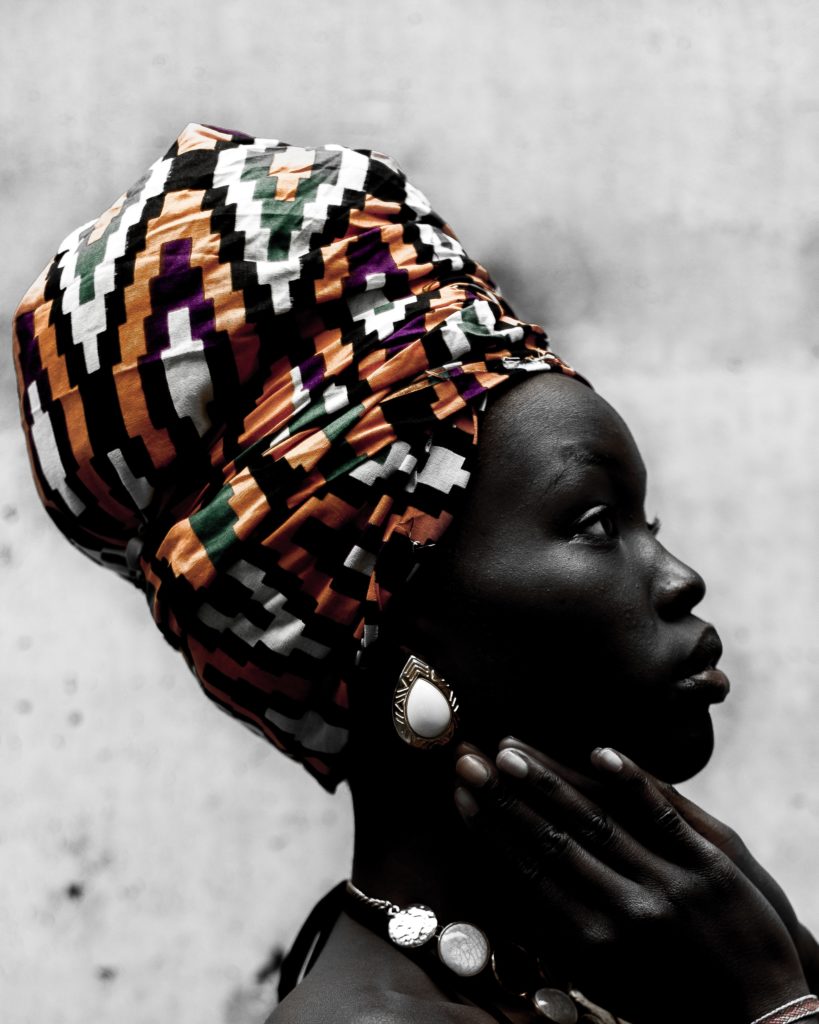 7. History. Recognize that knowledge is power, which is why we need to know history. Black people’s history doesn’t start with forcible enslavement, there is a rich civilizational legacy to be proud of. When exploring the history of forcible enslavement, remember to process your emotions when visiting places (e.g. Underground railroad sites, Sapelo Island, and former plantations) that highlight the struggle and sacrifices of the past generation. Increase your knowledge by visiting museums and learn about Black Muslim attempts to assert themselves (e.g. the American Islamic Museum and the International Museum of Muslim Cultures).
7. History. Recognize that knowledge is power, which is why we need to know history. Black people’s history doesn’t start with forcible enslavement, there is a rich civilizational legacy to be proud of. When exploring the history of forcible enslavement, remember to process your emotions when visiting places (e.g. Underground railroad sites, Sapelo Island, and former plantations) that highlight the struggle and sacrifices of the past generation. Increase your knowledge by visiting museums and learn about Black Muslim attempts to assert themselves (e.g. the American Islamic Museum and the International Museum of Muslim Cultures).
8. Reframe. Reframe oppression and work towards psychological liberation. Take control of circumstances even when life doesn’t go as planned.
9. Expose and Grow. Celebrate the diversity that makes up the Black Muslim community by attending neighboring Black Muslim mosques in order to expose yourself to different communities, people, and ways of thinking. Visit Black Muslim cultural centers (NYC, Philadelphia, D.C., Atlanta, Detroit, Chicago Oakland, and LA) to experience the vibrancy and highlight different subcultures.
10. Critical Thinking. Promote your intellectual development by starting a book club with Sapelo’s #BlackIslam Syllabus and grow. Participate in the critical conversations taking place within the varying sub-communities of Black Muslims (e.g. Black Muslim Psychology Conference, Black American Muslim Conference, Annual Muslim Convention). Follow Black Muslim thought leaders on Twitter and Instagram and explore varying perspectives and nuances that you may have never considered.
11. Black Elders. Benefit from the wisdom of elders because they connect you to the past and help you prepare for the future. Whether it’s your parents, aunts, uncles, grandparents, or neighbors, ask them questions, and document life lessons so that future generations may also benefit.
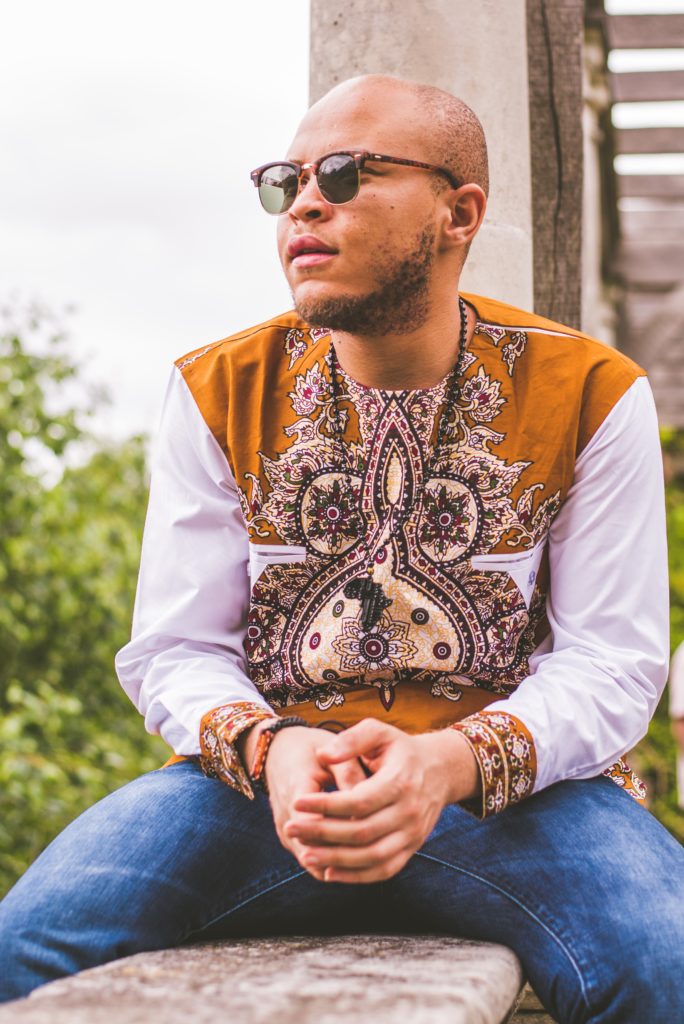 12. Sacrifice. Learn about the struggles and sacrifices of past and present leaders (e.g. Imam Jamil El-Amin, Imam Luqman) who worked hard and sacrificed for the community.
12. Sacrifice. Learn about the struggles and sacrifices of past and present leaders (e.g. Imam Jamil El-Amin, Imam Luqman) who worked hard and sacrificed for the community.
13. Embrace Africa. Sometimes learning about the past and present countries, cultures, and traditions from where our ancestors originated from in Western Africa may help us feel more connected to them in addition to nurturing pride, confidence, and curiosity. Read, watch documentaries and travel the world to countries such as Ghana, Mali, Senegal, Gambia, Guinea-Bissau, Mali, Angola, Congo, the Democratic Republic of Congo, Gabon, Ivory Coast, Nigeria, and Cameroon. Learn more about their cultures, languages, and socio-political contexts. In addition, explore other African countries in order to build your understanding and appreciation of the many cultures that make up the African continent and lessons that can be applied to the U.S. For example, understanding the history of South Africa, struggles against the apartheid state, collective organizing for change, reconciliation efforts, etc. can provide valuable learning opportunities about enacting change here in the U.S. This knowledge can also be a source of inspiration to imagine new possibilities for the future.
14. Financial Independence. Understand the history and obstacles facing Black wealth accumulation. Build yourself up financially so that you can be independent and in the driver’s seat. Learn and increase your financial literacy so that you can make more informed decisions. Whether you are still in high school or college, wealth accumulation is important to understand. Seek out classes and mentors to help you get started!
15. Relationship Preparation. As you mature and start thinking about a life partner, make sure you prepare for one of life’s most important decisions. Make sure to begin by knowing yourself and your needs. Listen to podcasts and video series that address the concerns of Black Muslims in the marriage process. Reach out to friends, families and matchmaking services dedicated to Black Muslims as you search for your partner (e.g. Black Muslim Single society). Involve your guardian or wali in the often complicated process of courtship and decision-making. Once you choose a spouse, make sure to be intentional and invest in your marriage emotionally and sexually. (e.g. The Village Auntie and A Taste of Honey can help!)
16. Impact. Commit to making an impact. For some, this may include raising awareness, concerns or making an impact through photoblog, short story, poetry, or hip hop. Share your analysis and reflections on a blog, create a podcast, vlog or video.
17. Re-imagine. Recognize we have the power to re-imagine new possibilities for ourselves and our community. Learn more about individuals in our community who are already making an impact on the world around us. Black Muslim excellence is happening, see how you want to be apart of it!
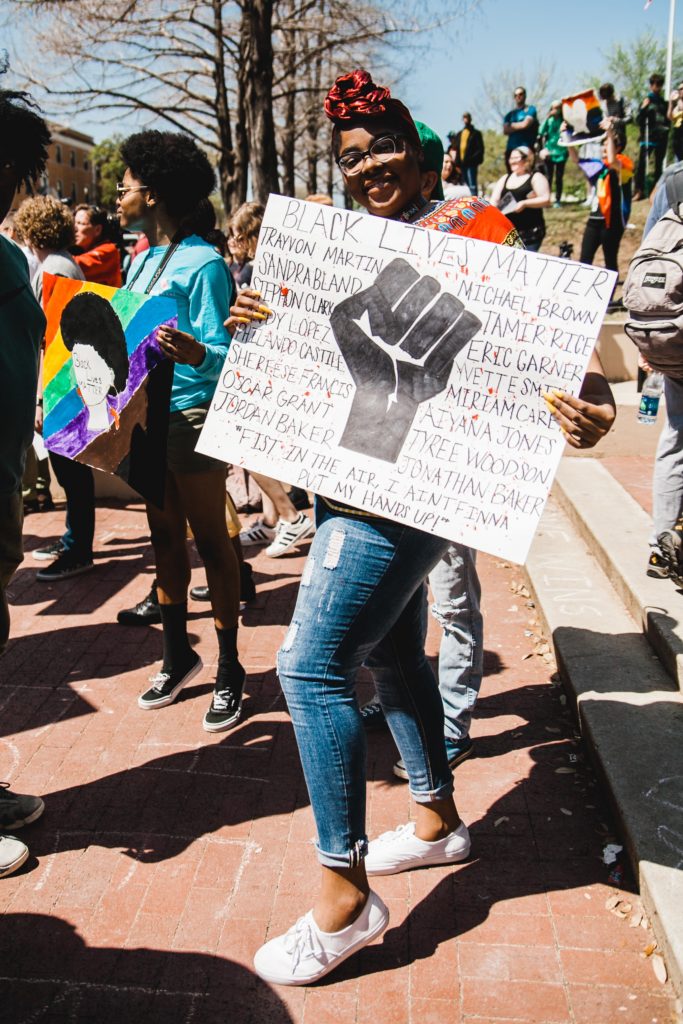 18. Black Muslim spaces. There is a dire need to nurture and nourish yourself in Black Muslim spaces. Seek these spaces for peer support, to build agency and a place of safety where collective healing can occur. These spaces can give you the confidence to assert yourself and thrive! Make sure to engage Participate in on-going conversations at Black Muslim community national gatherings (e.g. Black Muslim Psychology Conference, Black American Muslim Conference, Annual Muslim Convention, Annual Riyaadah).
18. Black Muslim spaces. There is a dire need to nurture and nourish yourself in Black Muslim spaces. Seek these spaces for peer support, to build agency and a place of safety where collective healing can occur. These spaces can give you the confidence to assert yourself and thrive! Make sure to engage Participate in on-going conversations at Black Muslim community national gatherings (e.g. Black Muslim Psychology Conference, Black American Muslim Conference, Annual Muslim Convention, Annual Riyaadah).
19. Current Reality. While socio-political-historical and current realities for Black Americans are often overwhelming (e.g. When They See Us), you do have a choice. Do you want to be change agents and work to uplift your lives and that of your communities or continue the status quo? If you commit, you need to invest in growth and servant-leadership opportunities, such as the Deeply Rooted Emerging Leaders (DREL Fellows) program.
20. Make your mark! The struggle continues and the case for reparations is clear. Explore different pathways taken to make a difference (e.g. Ahmad Abdul Rahman.) Some have used community organizing, while others have chosen Hip Hop to raise consciousness and mobilize others to action. While these efforts continue, it is important to recognize the obstacles that may be faced. Draw on history and legacy to build a better future. For truly, Allah is the Best of planners!
Resources for Black Mosques and Organizations
Help youth thrive in community.
“I for one believe that if you give people a thorough understanding of what confronts them and the basic causes that produce it, they’ll create their own program, and when the people create a program, you get action.”
— Malcolm X (El-Hajj Malik El-Shabazz)
Black Muslim mosques have been nurturing youth socially, morally, intellectually, and emotionally for decades. How can we be more responsive and intentional in our efforts? In order to help our youth thrive, as communities we must be youth-centered, support families, and have relevant programming. Use the resources below to help your community better meet the needs of young people. If there are more specific or better resources that you think will be helpful for communities please send us a suggestion here.
Youth Programming
1. Effective Programming. Use Positive Youth Development principles (see above section) to develop a strong youth program at your mosque. Understand the factors impacting Black Muslim youth development and learn how to take an organizing approach to youth development. Develop a pipeline of organizers, so that a path of healing through rejuvenated civic life can be fostered for Black Muslim youth.
2. Youth Model. Understand the need to create an empowering model to engage youth so they become change agents. Develop a leadership pipeline and help young people realize they can make an impact.
3. Youth Centered. As adults in the community, we must recognize our critical role in nurturing young people and creating safe environments. It’s important for adults to understand American Muslim youth and recognize the challenges and opportunities. This knowledge can be used to make the mosque more youth-friendly, welcoming and inclusive, and help connect with young people.
4. Training. Require mosque leaders, staff, and volunteers to attend professional training on youth development. Open these trainings to parents so there are more individuals working to uplift our children.
5. Mentors. Recruit and retain mentors who are invested in building caring relationships that uplift Black Muslim youth. Help mentors realize the difference they can make in the lives of young people.
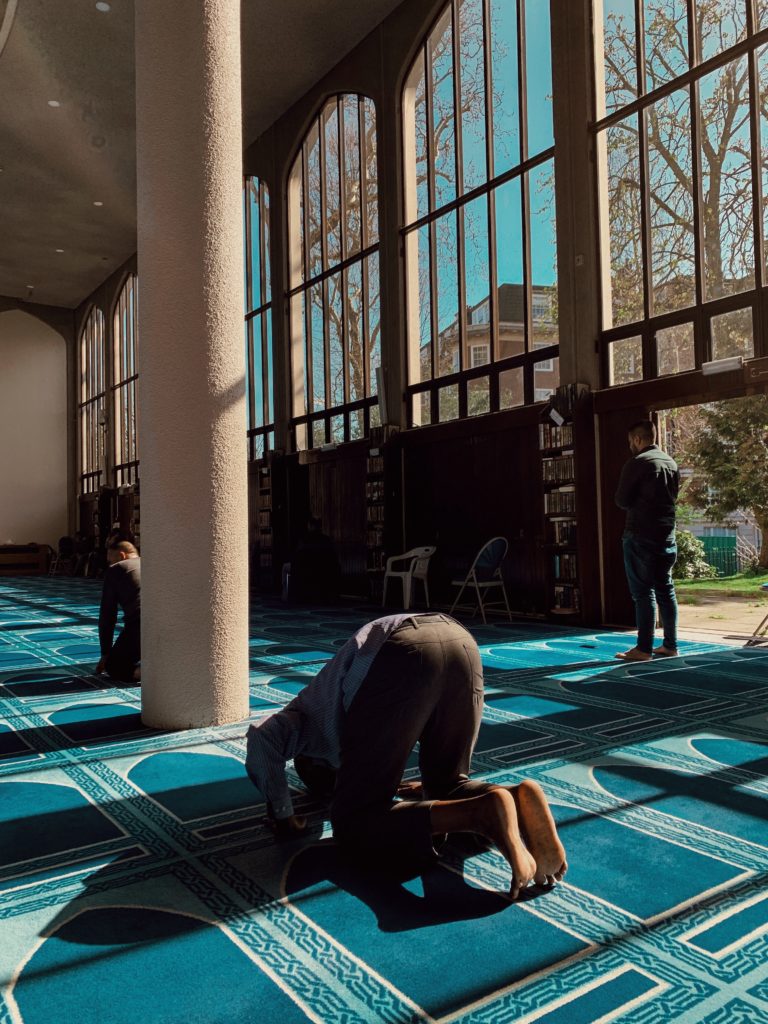 6. Safe Spaces. Youth programming must feel safe for young people so that they can thrive. Spaces where they can talk about what’s on their mind, connect at a deeper level, and help each other navigate through the challenges they face.
6. Safe Spaces. Youth programming must feel safe for young people so that they can thrive. Spaces where they can talk about what’s on their mind, connect at a deeper level, and help each other navigate through the challenges they face.
7. Needs. Conduct a needs assessment in order to better understand what young people in your mosque need to create safe spaces. Identify issues impacting the community, spiritual concepts that may need to be nurtured, as well as skills that need to be developed to bring about change (e.g. community organizing, personal development, time management, etc.)
8. Acknowledge Trauma. In the face of racial or community trauma, help young people recognize their emotional wounds, learn how to engage in self-care and work towards healing. Have on-going facilitated conversations on the impact of sustained oppression, generational trauma, and the impacts of these on their personal lives. Channel the trauma and hurt though collective sharing. Engage in emotional and spiritual practices to support healing and be willing to facilitate mental health services, when needed.
9. Uplift with history. Our youth need to know their history and where they came from, in order to know who they are. Highlight themes of civilizational contributions, perseverance, resistance, and legacy of being change agents. Watch movies and have discussions. Bring history to life by organizing a play about time periods, historical Black Muslims (e.g. Living History project). Connect history to their interests. For example, share how hip hop was influenced by Islam and how the impact can still be seen today. Use history to build confidence and inspire Black Muslim youth to take responsibility and make a difference around them.
10. Engage. Adults should engage young people in activities that address racism. Watch movies/documentaries together that examine social injustices (e.g. When they see us, 13th). Discuss the personal impact and lessons learned from different experiences so that young people can learn and grow. Help them identify avenues that can be taken to make a difference. Facilitate and encourage young people to get involved in local efforts to make an impact.
11. Identity. Develop programs and activities that enhance young people’s religious and racial identities. Watch and discuss identity affirming movies, build intellectual skills, and collectively process emotions experienced.
12. Celebrate. Develop rites-of-passage programs to celebrate young people as they transition from one stage of life to another. Help foster love, hope, and joy, to help Black Muslim youth to thrive.
 13. Sports. Team sports have many positive benefits for young people, including collectively working to achieve a goal. Provide athletic programming to help build self-esteem, confidence, discipline, and bonding between peers in addition to teamwork.
13. Sports. Team sports have many positive benefits for young people, including collectively working to achieve a goal. Provide athletic programming to help build self-esteem, confidence, discipline, and bonding between peers in addition to teamwork.
14. Skills. Teach young people skills, such as how to address racism when they see it. Have regular skills-building trainings (e.g. personal development, community organizing, digital organizing, etc.) to enhance their abilities to be change agents. Partner with local and national organizations so that young people can actively use these skills to effect change.
15. Finances. Teach them financial terms and skills based on their developmental stage. Let them practice these 9 skills when organizing and planning community projects and activities.
16. Travel. Young people need Black-centered spaces for healing, connection, and growth. Help young people fundraise and organize road trips so that youth can experience activities such as camps, (e.g. Kamp Khalil, Camp Ismah) sports events, (e.g. Riyaadah) and leadership development programs for young adults (e.g. Deeply Rooted Emerging Leaders Fellowship) or visit other Black Muslim communities and/or historical sites.
17. Substance use. Educate them about Muslim substance use, such as alcohol and tobacco. Address unanswered questions they may have. Invite individuals who may have struggled to talk about their pathway and impact. Provide direction and resources for those needing help.
18. Awareness. Provide Islamic health education about puberty, delaying sexual gratification, and/or implement a sexual education program specific to your community’s needs. Know the stats on pre-marital sex, have on-going conversations with young people, and encourage parents to have conversations with their kids as well.
19. Marriage preparation. Provide marriage preparation resources, workshops, podcasts, and conversation in youth programming in order to set their marriage up for success
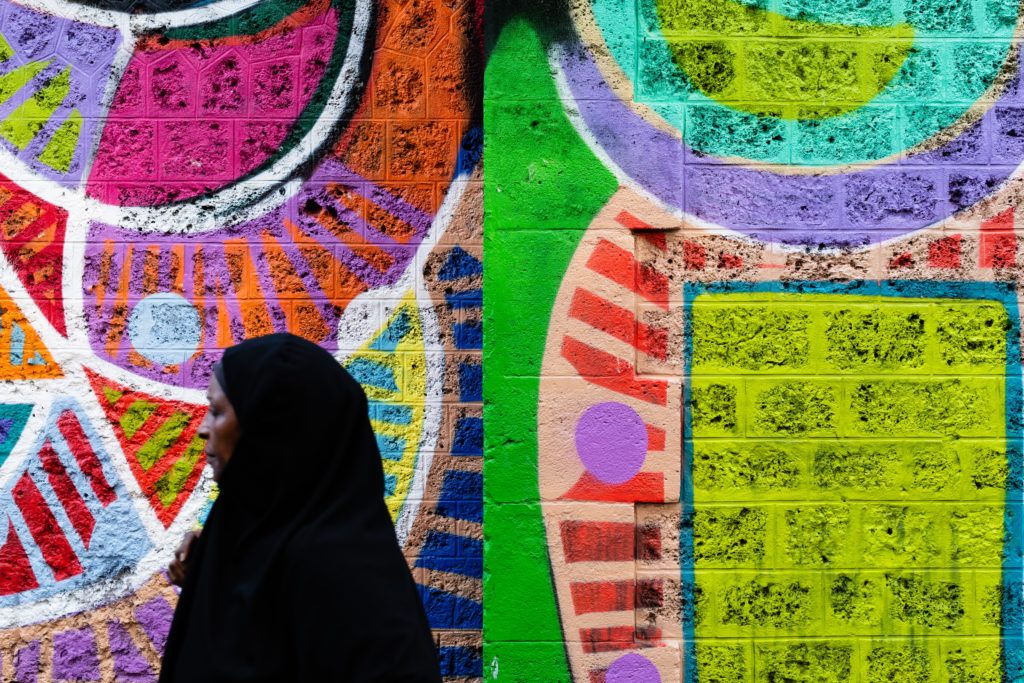 20. Practice Reality. Prepare young people for real situations they are likely to encounter. Practice what to do when stopped by the police. Educate young people about likely social scenarios, and practice by having conversations or workshops.
20. Practice Reality. Prepare young people for real situations they are likely to encounter. Practice what to do when stopped by the police. Educate young people about likely social scenarios, and practice by having conversations or workshops.
21. Job Training. Organize or take young people to summer volunteer, internship, or job opportunities. Inform them about scholarships, programs, and extra-curricular opportunities to better prepare them for future jobs.
22. Serve. Engage young people in meaningful youth-directed projects to improve their community. Community service helps to nurture a sense of community responsibility, creativity, planning, and teamwork. Make sure to have fun and build positive connections between all youth participants.
23. Creativity. Harness their energy and experiences to unleash their creativity which will promote their development and impact them in other areas of their lives. Guide them with workshops and encourage them to create and showcase their efforts in the community. Young people can accomplish this through creative arts, such as photography, spoken word, singers, plays, movie making, etc. Share the accomplishments of other young Black Muslims in order to highlight that the possibilities are endless.
24. Community organizing. Provide young people with community organizing skills and tools to make an impact on their communities.
25. Opportunities. Give young people an opportunity to make a difference in their community. Use mentorship and experiential learning to practice scaffolding techniques, so that young people develop the skills and experience to address the issues that are most passionate about.
Family Programming
In addition to youth programming, communities that offer family support through education, resources, and activities can help Black Muslim youth thrive. Here are some ideas to get your mosque started:
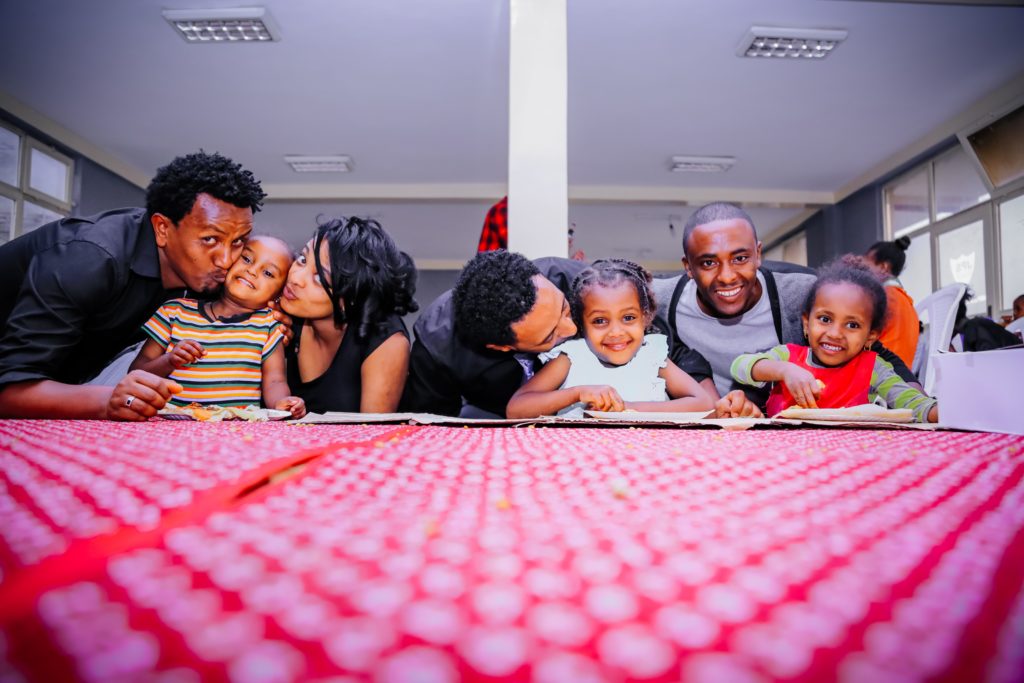 1. Parenting Education. Provide workshops so that parents are educated about issues such as risk behaviors, bullying, and suicide, and how to strengthen parent-child relationships. Establish a parent group that meets weekly, discusses parenting articles, and brainstorm implementation ideas, using the FREE articles shared by The FYI weekly (sign up here). Make sure to be inclusive of fathers in programming because they have a powerful impact on their children.
1. Parenting Education. Provide workshops so that parents are educated about issues such as risk behaviors, bullying, and suicide, and how to strengthen parent-child relationships. Establish a parent group that meets weekly, discusses parenting articles, and brainstorm implementation ideas, using the FREE articles shared by The FYI weekly (sign up here). Make sure to be inclusive of fathers in programming because they have a powerful impact on their children.
2. Family Fun. Encourage family bonding by organizing activities that can be completed as a family, recognizing the diversity of family make-up. Ideas for friendly competition between families include scavenger hunts, Olympics, movie nights, and other games.
3. Support Marriages. If marriages are healthy and strong, parents are more able to provide a loving and caring home environment. The mosque can support healthy marriages by having regular Jummah Khutba (Friday Sermons) addressing marriage-related topics. Increase the chances of successful marriages by providing services and programming for couples before they are married, such as marriage mentors, premarital counseling and other couples-oriented events in addition to religious and social programming. Form marriage support groups for both married and engaged couples. Organize workshops to build marriage skills, provide instructions on enhancing marital intimacy (e.g. The Village Auntie, A Taste of Honey), and host date nights by providing an evening of childcare. Healthy marriages can also be celebrated by having celebratory dinners for congregant marriages reaching important marriage milestones (e.g. 25 & 50 years of marriage).
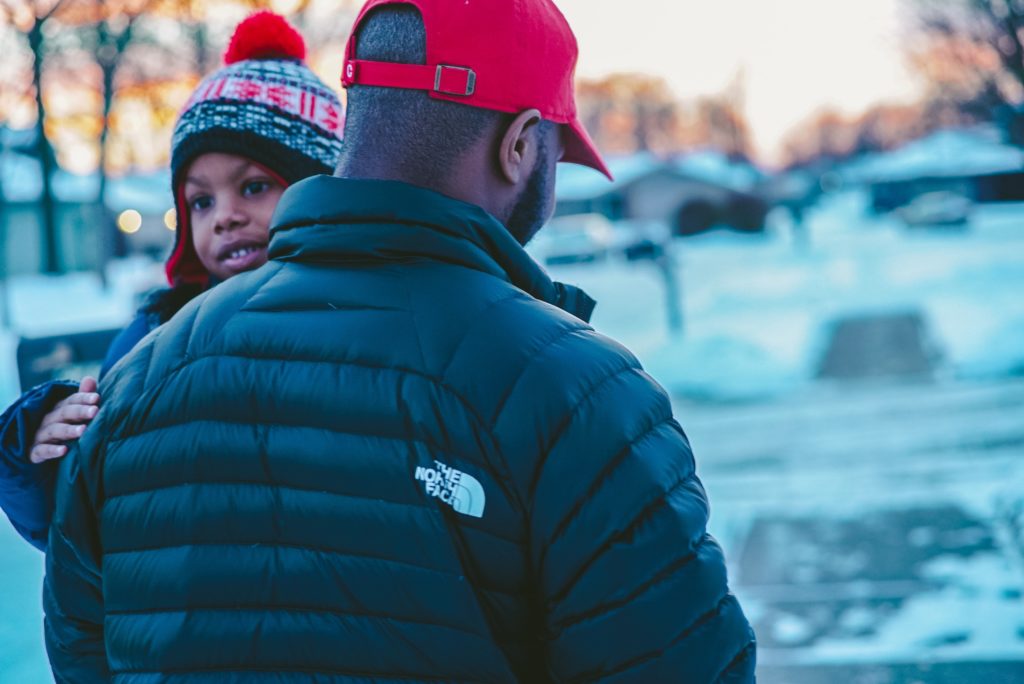 4. Single Parents. Ensure that language and examples used in Jummah Khutba (Friday Sermons) are inclusive of single families. Identify the needs of single parents and provide tailored programming. Organize support groups for single parents so they can share ideas, resources, and gain support from each other. When the community has mother-daughter or father-son events, have other congregants serve as surrogate parents so that the young person can be included in the programming.
4. Single Parents. Ensure that language and examples used in Jummah Khutba (Friday Sermons) are inclusive of single families. Identify the needs of single parents and provide tailored programming. Organize support groups for single parents so they can share ideas, resources, and gain support from each other. When the community has mother-daughter or father-son events, have other congregants serve as surrogate parents so that the young person can be included in the programming.
5. Date Night. While parents often want a date night, many don’t prioritize the need or may have issues finding a caregiver they are willing to leave their children with. Encourage parents to take a night out to engage in some self and/or couple care by organizing a date night program where parents can leave their children at the mosque for a few hours of fun activities.
6. Resource Sharing. Collectively, we have more resources than we realize. Why not gather our resources and share them for the collective benefit? Provide space for parents with young children to gather for cooperative playgroups, establish a toy lending library, clothing swap, or even have sign-up for meal exchange programs in order to provide parents additional support, resources, and time as they nurture their children.
7. Ice Cream Social. Organize an ice cream social! Invite congregants, the neighborhood, non-Muslim relatives, etc to enjoy. Have some food, fun, and get to know one another in order to bring families together.
8. Facilitate. Be aware of and connected to local and national agencies, organization, conferences, individuals that may have relevant programming, scholarships, internships, or other opportunities to benefit young people and their families. Share these opportunities as well as mentor and prepare congregants to be successful in obtaining these resources.
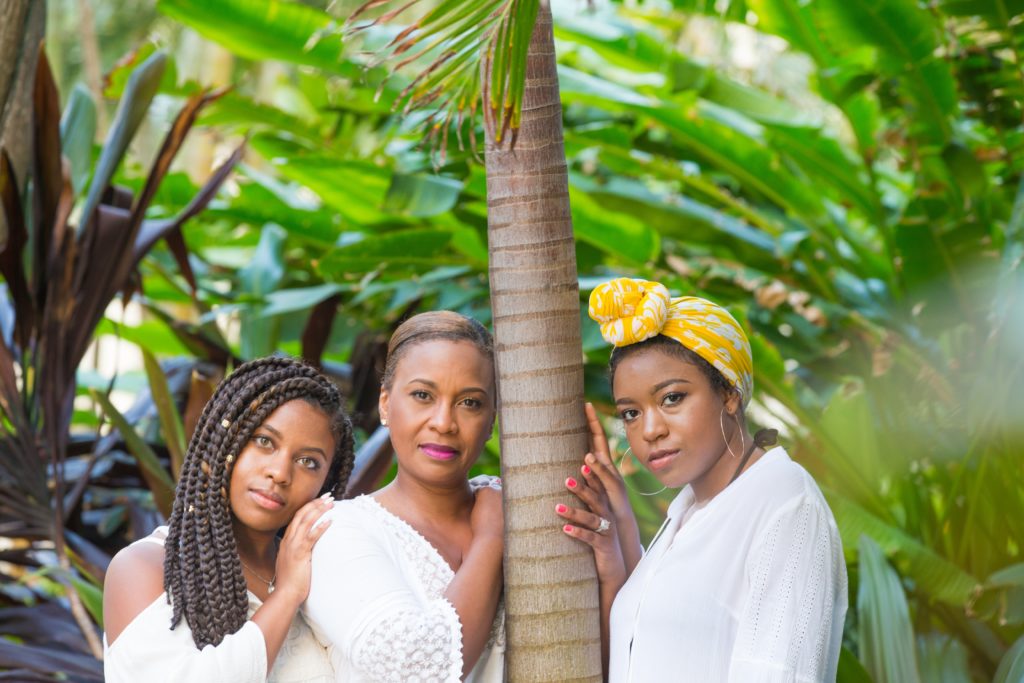 9. Celebrate. Communities can celebrate families! Organize a dinner every quarter to celebrate mothers, fathers, children, grandparents, as well as aunts and uncles. Encourage family members to share their affection and appreciation for the family member being celebrated by writing a word of appreciation. Make sure that programming is inclusive of community members that may not have a family member present, available, or in their lives to be able to celebrate.
9. Celebrate. Communities can celebrate families! Organize a dinner every quarter to celebrate mothers, fathers, children, grandparents, as well as aunts and uncles. Encourage family members to share their affection and appreciation for the family member being celebrated by writing a word of appreciation. Make sure that programming is inclusive of community members that may not have a family member present, available, or in their lives to be able to celebrate.
10. Non-Muslim relatives. Facilitate conversations on how to navigate and strengthen relationships with non-Muslim relatives. Invite non-Muslim relatives into the mosque and celebrate the positive impact they have on the lives of young people. Such efforts can help strengthen family relationships, establish goodwill, and reduce the tension that may exist due to differences in religion.
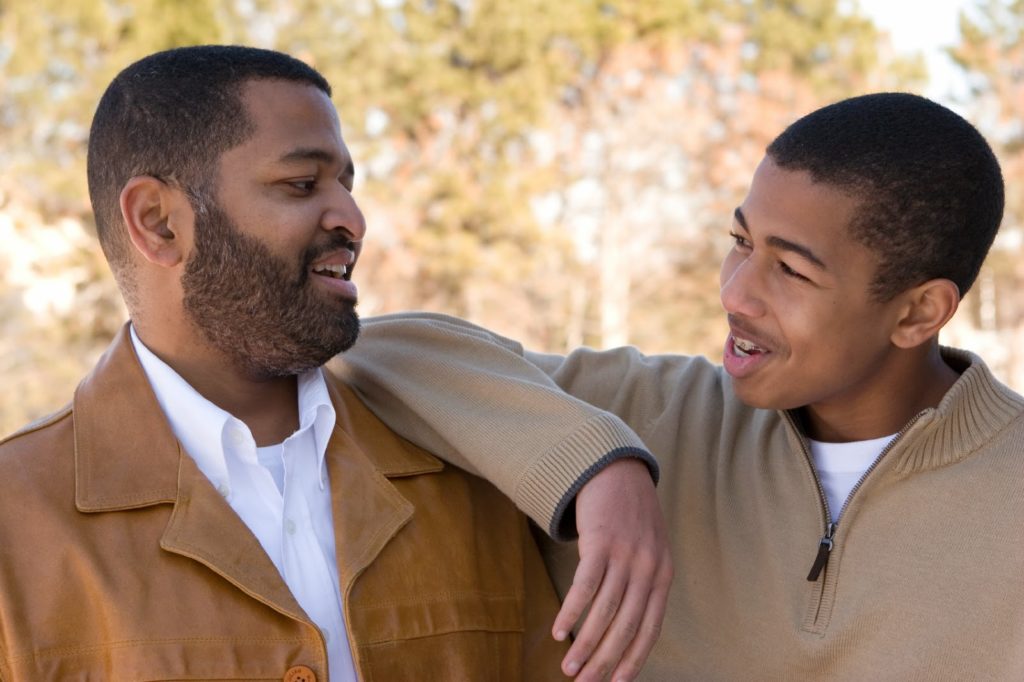
Community-Wide Programming
1. Youth Centered. Adults in the community should recognize their critical role in nurturing young people and creating safe environments.
2. Professional training. Provide mosque leadership, staff, and volunteer training on positive youth development and understanding Black Muslim youth. Such training will help strengthen and build community relationships so that the mosque is more inclusive. In addition, training on suicide prevention, mental health, and substance use would enable them to better support young people.
3. History. Provide community-wide education through Jummah Khutbas and lectures on Black legacy, strength, and resistance during enslavement, as well as recent histories impacting Black Muslim communities.
4. Book Club. Organize a book club using Sapelo’s #BlackIslam Syllabus to increase community member’s knowledge about Black Muslim history. Encourage intergenerational participation in order to hear and learn from differing perspectives and experiences.
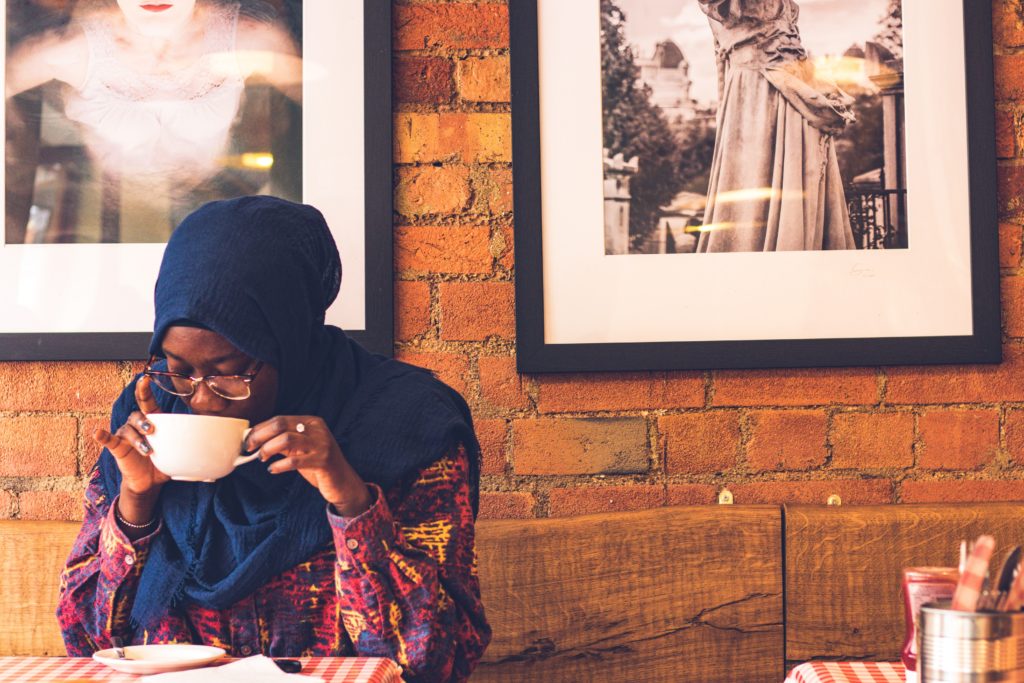 5. Mental Health. Provide community-wide mental health education (link below) through varying resources including, books, workshops, resources, and Mental Health First Aid training. Organizers should mandate attendance for mosque staff and volunteers, as well as encourage parents, adolescents and young adults to attend.
5. Mental Health. Provide community-wide mental health education (link below) through varying resources including, books, workshops, resources, and Mental Health First Aid training. Organizers should mandate attendance for mosque staff and volunteers, as well as encourage parents, adolescents and young adults to attend.
6. Intergenerational Programming. Intergenerational bonding has positive benefits for both youth and elders. Plan intergenerational activities such as elders reading stories to children, cooking together, and teaching young people skills. Organize community-wide talks and encourage elders to share their experiences such as Black Muslim elder’s memories of the Civil Rights Movement or sharing their journeys to Islam. Encourage young people to learn about their elders by asking them to document oral history through creative means such as videos, photo essays, audio recordings.
7. Volunteer. Inspire congregants to volunteer for community-wide efforts in order to benefit spiritually and psychologically. Announce and organize volunteer opportunities in the mosque, in order to facilitate opportunities for congregants.
8. Camping. Organize a mosque camping trip to connect congregants to nature, strengthen their relationship with Allah, and build intra-community connections.
 9. Emergencies. Unexpected events do happen, such as breaking a limb, surgery, loss of a parent, or sickness of an elder. Have emergency services set up so that volunteers can spring into action. Communities can support each other by organizing meal circles, helping with children’s transportation to activities or homework. These efforts can strengthen a community, by building community connections.
9. Emergencies. Unexpected events do happen, such as breaking a limb, surgery, loss of a parent, or sickness of an elder. Have emergency services set up so that volunteers can spring into action. Communities can support each other by organizing meal circles, helping with children’s transportation to activities or homework. These efforts can strengthen a community, by building community connections.
10. Community Organizing. Offer the mosque as a neighborhood/community meeting place. Work with neighborhood organizers to map community capacity, be involved in neighborhood community organizing efforts, and collaborate with others to promote positive community change. Adult modeling of principled cooperation and integration of youth in these efforts will enable young people to integrate faith into action, provide opportunities to build skills and network while making a difference in communities.
More Resources from The FYI

Six Ways to Better Your Relationship with Youth
Did you know that young people with mentors are less likely to engage in risky behaviors?

The FYI's Muslim Youth Identity Bulletin
This bulletin summarizes research on Muslim youth identity development in a digestible way.
Risk Behaviors Among American Muslim Youth
What to know about American Muslim college students and risk behaviors, all in one infographic.
Have a suggestion?
Is there a resource or topic you think should be added to this toolkit? If so, please share your suggestions and help improve these resources.
Strengthening Black Muslim Youth Identity
Help youth build a positive sense of self.
“A race of people is like an individual man; until it uses its own talent, takes pride in its own history, expresses its own culture, affirms its own selfhood, it can never fulfill itself.”
— Malcolm X (El-Hajj Malik El-Shabazz)
Identity refers to the process of knowing one’s self in relation to the world– it’s answering the question, “Who am I?” We form our identity based on the messages and interactions we have with individuals (e.g. parents, teachers, mentors) and institutions (e.g. school, mosques, after school programs) in our environment. We’ve outlined 20 actions below that you can take to strengthen Black Muslim youth’s identities at home, in the classroom, or in the community.
1. Understand Identity. Learn about Black identity development, particularly during the teen years, as well as common theories used to understand shifts in identity, such as the 5 Stage Model of Black Identity Development.
2. Negativity. Black Muslim youth are constantly receiving negativemessages about race and religion from their environment. In order to counter the negativity and build a shield of strength and protection. Black Muslim identities must be nurtured and strengthened by our environment.
3. Acknowledge Hurt. Everyday racism takes a toll on well being. Make sure to acknowledge the pain, engage in self-care, and surround yourself with people who bring you comfort. Make sure to take care of your mental health and well-being.
4. Resist. As identity is strengthened, recognize that it may come under fire at times. Prepare to resist racism and equip young people with skills to interrupt racist behavior politely but firmly.
5. Racial Bias. Reflect on your language. Is Blackness ever used in a derogatory manner (e.g. “That’s so ghetto”, “don’t get darker”, “good hair”, etc.)? Do you exhibit implicit bias? Take the racial implicit bias test or an internalized racism inventory to see if you have unintentionally internalized oppression. If so, read on to see what you can do about it!
6. Self Love. Teach young people how to love their Blackness. Uplift characteristics that society devalues, such as hair and skin color. Share celebratory images of Black Muslim’s beauty. Provide positive affirmations, affection, and respect within the context of your relationship.
 7. Representation Matters. Surround young people with positive Black images and experiences that mirror their reality. Read children’s books that center Black Muslims and uplift Black boys and girls. Buy toys that look like them (e.g dolls). Expose youth to the many Black Muslim role models and leaders around them from past and present as well as in specific fields.
7. Representation Matters. Surround young people with positive Black images and experiences that mirror their reality. Read children’s books that center Black Muslims and uplift Black boys and girls. Buy toys that look like them (e.g dolls). Expose youth to the many Black Muslim role models and leaders around them from past and present as well as in specific fields.
8. Deconstruct & Re-construct. As they get older, teach Black youth about the impact of media on their identity. Help them deconstruct negative media messages.
9. Positive Images. Watch, analyze, reflect upon movies that affirm Blackness and address issues impacting the community. If you need reflection questions to guide conversations, check out these resources to get you started (e.g. Black Panther, Remember the Titans, Akeelah, and the Bee, Antwone Fisher.)
10. Live Your Faith. Nurture young people’s religious identity by involving them in your practice, such as praying and reading the Quran together. Actions speak louder than words! Exemplify the importance of increasing faith by reading books, listening to lectures, and attending programs to religious knowledge. Make sure to have conversations about why faith matters to you and celebrate important events and periods (e.g. Ramadan and Dhul Hijjah) by developing family traditions that they can fondly remember.
11. Understand Legacy. Teach young people that their ancestors had rich cultures and civilizations prior to being enslaved. Learn about the richness of African civilizations, rulers, and culture. Highlight their ancestors’ struggles and strengths as well as their resistance and successes. Teach them about the important role and contributions of early Black Muslims on Muslim civilizations to strengthen their religious identities. Guide them to understand the multiple pathways that have an impact on Black Muslims as well as the implication of their history on their lives today and their future.
12. Experience history. In order to strengthen young people’s awareness, connection, and identity, visit museums that share Black Muslim history (e.g.the American Islamic Museum and the International Museum of Muslim Cultures). Take family trips that highlight the struggle and sacrifices of the past generation, by visiting Underground railroad sites, Sapelo Island, and former plantations. Share your reflection throughout the trip to help them process their emotions.
 13. African Cultures. Expose young people to the numerous countries, cultures, and traditions that make up African cultures. When they are young, watch children’s shows (e.g. Akili and Me), bring books from the library or search the web for travel and documentaries. If you are able to travel abroad, visit the following countries where many enslaved individuals were kidnapped from Ghana, Mali, Senegal, Gambia, Guinea-Bissau, Mali, Angola, Congo, the Democratic Republic of Congo, Gabon, Ivory Coast, Nigeria, and Cameroon. Learn about other African countries, their history, and current realities. For example, understanding the history of South Africa struggles against the apartheid state, collective organizing for change, reconciliation efforts, etc can provide valuable learning opportunities.
13. African Cultures. Expose young people to the numerous countries, cultures, and traditions that make up African cultures. When they are young, watch children’s shows (e.g. Akili and Me), bring books from the library or search the web for travel and documentaries. If you are able to travel abroad, visit the following countries where many enslaved individuals were kidnapped from Ghana, Mali, Senegal, Gambia, Guinea-Bissau, Mali, Angola, Congo, the Democratic Republic of Congo, Gabon, Ivory Coast, Nigeria, and Cameroon. Learn about other African countries, their history, and current realities. For example, understanding the history of South Africa struggles against the apartheid state, collective organizing for change, reconciliation efforts, etc can provide valuable learning opportunities.
14. Critical thinking. Strengthen their sense of community responsibility and identity. Discuss issues impacting the Black community, such as the school to prison pipeline and police brutality. Introduce them to organizations and individuals working for community upliftment as well as the struggles and sacrifices made by leaders for community upliftment (e.g. Imam Jamil El-Amin, Imam Luqman). Expose them to critical conversations within the Black Muslim community by attending regional and national gatherings of Black Muslim community leaders, activists, and intellectuals (e.g. Black Muslim Psychology Conference, BlackAmerican Muslim Conference, Annual Muslim Convention.)
15. Elders. Encourage Black Muslim youth to benefit from Black Muslim elders’ wisdom. Elders connect us to the past and help us prepare for the future. Have young people spend time with them doing activities like learning hobbies, cooking meals, as well as helping them with errands. Encourage elders to share memories of historical events and personal transformations and document them for future generations to benefit.
16. Create. Encourage young people to channel their energy and creatively express themselves. They can make a photoblog, write a short story, poetry, or hip hop. Share their analysis and reflections on a blog, create a podcast, vlog or video.
 17. Peers. Have them participate in programs with other Black Muslim youth and help them develop a positive peer network that affirms their identities and where they feel they belong. Activities such as camps (e.g. Kamp Khalil, Camp Ismah,) sports events (e.g. Riyaadah), leadership development programs for young adults (e.g.Deeply Rooted Emerging Leaders Fellowship).
17. Peers. Have them participate in programs with other Black Muslim youth and help them develop a positive peer network that affirms their identities and where they feel they belong. Activities such as camps (e.g. Kamp Khalil, Camp Ismah,) sports events (e.g. Riyaadah), leadership development programs for young adults (e.g.Deeply Rooted Emerging Leaders Fellowship).
18. Black Muslim Spaces. It is important for Black Muslim youth to experience Black Muslim spaces in order to heal from the daily microaggressions, strengthen their connection, and build support in order to thrive. These experiences are identity enhancing, transformational and can build long term friendships and support.
19. Expose and Grow. Celebrate the diversity that makes up the Black Muslim community by attending neighboring Black Muslim mosques in order to expose them to new ideas, people, and ways of thinking. Visit Black Muslim cultural centers (NYC, Philadelphia, D.C., Atlanta, Detroit, Chicago Oakland, and LA) to experience the vibrancy and highlight different subcultures.
20. Role Models. Introduce them to the never-ending examples of Black Muslim excellence in the community. Share the amazing work that Black Muslims are doing so that they learn to use their strengths and talents to make a difference.
Embracing Black Muslim History
Connect to and contextualize history.
“A people without the knowledge of their past history, origin and culture is like a tree without roots.”– Marcus Garvey
Our understanding of history impacts how we see ourselves, our role, and imagining future possibilities. So it’s important to nurture our understanding of history in order to build a positive sense of self. Teaching Black Muslim history helps to connect us to the past civilizational achievements, contextualize the struggles of ancestors, and affirm the integral role they have had in building America. It is Black history, it is American history, it is Muslim history.
Note: The resources below were curated for use for young people, parents, community members and teachers in order to begin conversations and understanding. We recognize that there are many more academic resources available, this list focuses on non-Academic material. For a more in-depth, comprehensive and scholarly resource, please refer to Sapelo’s #BlackIslam Syllabus.
 1. Anchor. Recognize that African religious figures are mentioned in the Quran, were famous companions of the Prophet, and made enormous contributions to early Islamic history
1. Anchor. Recognize that African religious figures are mentioned in the Quran, were famous companions of the Prophet, and made enormous contributions to early Islamic history
2. Ancestry. Learn about ancestral background, by exploring African civilizational history. Explore West African regional history, given that many enslaved individuals originated from this region. Teach young people about how Islam came to this region. Learn about the Empire of Ghana, Benin, Mali Empire, Songhai Empire, Sokoto Empire, and Tukor Kingdoms. Expose Black Muslim children to their legacy of knowledge, such as Timbuktu (cartoon, interview). They must be familiar with powerful African leaders, such as Mansa Musa (article), Sonni Ali, Askia Muhammed (podcast, article), Amina Sukhera (Queen of Zazau- article), Uthman Dan Fodio, Nanu Asmau (video or article), and El-Hadj Umar Tall. Additional academic reading on the history of Islam in Africa can be found here.
3. Explorers. African Muslims have deep roots in the Americas. Individuals such as Abu Bakari II, the King of Mali, and Khashkhaash ibn Saieed, were some of the early Muslim explorers that predated Columbus’ arrival.
4. Religious scholars. Recognize and learn about the many West African Muslim scholars and their contributions to Islamic intellectual development.
5. Reflect. The transatlantic slave trade interrupted the civilizational growth of Western Africa. This time period is both rich and raw, and should be discussed with respect, in order to avoid further dehumanization of our ancestors. Look, learn, listen and reflect upon the personal meaning of the transatlantic slave trade and how ancestors fought for self-determination and engaged in spiritual struggle. Learn about the inhumane conditions they endured while waiting to be transported (e.g Goree Island, Kunta Kinteh Island) as well as during the voyage. Reflect upon movies that bring to life the horrors of enslavement (e.g. Roots, 12 Years a Slave, Amistad, etc.) Visit plantations and listen to first-hand accounts of those who were enslaved (e.g. Redoshi and Kazoola are among the last survivors of the transatlantic slave trade). Consider the physical and psychological toll slavery had on our ancestors and continues to impact us today.
 6. Know. Even though our ancestors were kidnapped, they still resisted. Their resistance came in many forms including rebellions, as well as attempts to maintaining identity through food, dress, and music. Learn about ancestors, such as Omar ibn Said (video, article), Nicholar Said, Bilali Muhammad (video, article), Abdurahman Ibrahima (video, article), Mahommah Gardo Baquaqua, Lamina Kebe, Nanny of the Maroons, and others who resisted enslavement.
6. Know. Even though our ancestors were kidnapped, they still resisted. Their resistance came in many forms including rebellions, as well as attempts to maintaining identity through food, dress, and music. Learn about ancestors, such as Omar ibn Said (video, article), Nicholar Said, Bilali Muhammad (video, article), Abdurahman Ibrahima (video, article), Mahommah Gardo Baquaqua, Lamina Kebe, Nanny of the Maroons, and others who resisted enslavement.
7. Recognize. Enslavement resulted in criminalizing religious practice, resulting in the erasure of Black Muslim identity and is connected to current Islamophobia. Even after “emancipation” occurred, Black oppression continued. The remnants of enslavement remain through the Jim Crow laws. Watch and discuss Ava DuVernay’s 13th amendment documentary (e.g. discussion questions for teachers and mosque/youth groups) to learn how it is still impacting us today.
8. Re-emergence. Faith has been the bedrock of Black communities and Islam has re-emerged through varying pathways, including jazz. Proto Islamic movements and early Sunni movements (e.g. Dar-ul-Islam), resulted in re-introducing Islam to Black communities across the nation.
9. Uplift. During the Civil Rights movement, many activists turned to Islam, some of whom have become cultural icons and continue to inspire people around the world. “Black Muslim” became associated with addressing the needs of Black people through varying forms of resistance: starting from keeping neighborhoods safe to prison reform, and even foods eaten, such as bean pie. As Black leaders (Muslim and non-Muslim) attempted to make a difference, it is important to recognize government attempts to subjugate continues to impact even to this date.
10. Be the change. The struggle continues and the case for reparations is clear. Explore different pathways taken to make a difference (e.g. Ahmad Abdul Rahman). Some have used community organizing, while others have chosen Hip Hop to raise consciousness and mobilize others to action. While these efforts continue, it is important to recognize the obstacles that may be faced. Draw on history and legacy to build a better future. For truly, Allah is the Best of planners!
Mental Health Resources
Nurture youth towards holisitc wellness.
“Any movement for the Negro’s freedom that overlooks this necessity [of psychological freedom] is only waiting to be buried…” – Martin Luther King, Jr.
Navigating the daily stressors of anti-Black racism may take a toll on your mental health and well being. If you don’t address them now, the long term consequences could be harmful to you and your loved ones.
 1. Acknowledge that race and mental health intersect with each other to have an impact on your life. Take a moment to reflect on the impact it may be having on your life.
1. Acknowledge that race and mental health intersect with each other to have an impact on your life. Take a moment to reflect on the impact it may be having on your life.
2. Recognize. Racial trauma is real and everyday racism is stressful! Your reactions to stress may differ— it’s important to understand how you cope with racial stress and explore if there are more effective ways to engage in self-care.
3. Generational Trauma. In addition to current racial stress, understand that the trauma of enslavement has had an impact on mental health.
4. Understand. Know the factors that impact mental health and the myths that prevent you from getting the necessary help.
5. Identify. It is important to learn different ways of coping, and identify a personal plan that works best for you!
6. Tragic events. When something unexpected or tragic happens, you may need some additional help to process your feelings, how to talk to children, spiritual reminders, and resources for mosques to provide support. When there is a loss, you may need additional help to process grief, support your children’s healing, or make sense of survivor’s guilt. If the tragedy impacts the wider community, consider implementing community self-care events.
 7. Vulnerabilities. Be aware of certain life transitions that can increase stress and vulnerability, such as motherhood particularly infant care. In addition, certain time periods, such as Ramadan, can make managing mental health challenging.
7. Vulnerabilities. Be aware of certain life transitions that can increase stress and vulnerability, such as motherhood particularly infant care. In addition, certain time periods, such as Ramadan, can make managing mental health challenging.
8. Get Help. You may need a professional to help process your struggles. If so, some individuals may prefer a Muslim therapist. An incomplete list can be found here and here. Others may prefer a Black therapist–some listings can be found here and here. Black Muslim therapists can be found within both directories.
9. Prepare. Be prepared and know what to expect in the first session!
10. Strengths-Based. It is important that your therapist take a healing- centered approach that acknowledges your religious and racial needs. S/he should engage with cultural humility as they promote resiliency. You may encounter challenges in therapy. If it doesn’t work out the first time, try another person, until there is a goodness of fit.
Feedback
Your feedback is incredibly valuable to us. It helps us refine and improve our efforts to better serve you. Whether it’s positive comments that motivate us or constructive criticism that guides our enhancements, your insights are an essential part of our journey. We genuinely appreciate your time and input as we work to provide the best possible experience. Thank you for being a part of our process!
This toolkit was developed by Sameera Ahmed Ph.D., Madiha Tahseen, Ph.D., and was designed by Sarrah AbuLughod, M.A.We would also like to thank our panel of reviewers: Fanta Doumbia, M.S.W; Sh. Ali Suleiman Ali, Ph.D.; Nandee Shabazz, B.A.; Malika Abdurrahman, M.A.; Aamal Abdul Malik, M.A.; Hanan Hashem, M.A.; Nadeem Siddiqi, Ph.D., Muneer Khalid M.A.; Ustd Zaynab Ansari and the generous support from Islamic Relief.


